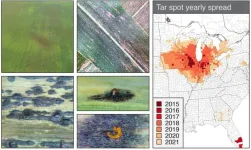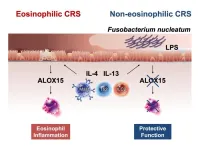HOUSTON ― The University of Texas MD Anderson Cancer Center’s Research Highlights provides a glimpse into recent basic, translational, and clinical cancer research from MD Anderson experts.
This special edition features oral presentations from the Society for Immunotherapy of Cancer (SITC) 38th Annual Meeting focused on scientific advances and breakthroughs in cancer immunotherapy from MD Anderson-led studies. Highlights include fecal microbiome transplants to improve immunotherapy responses, a modified herpes virus to deliver immunotherapy to patients who develop skin cancer following organ transplants, insights into the relationship between the gut microbiome and lung cancer progression, a personalized genetic vaccine to improve outcomes for carriers of Lynch Syndrome, a therapeutic target to improve treatment response in patients with lung cancer, and a novel therapeutic approach to deliver therapy directly into the liver for patients with metastatic uveal melanoma.
Specialized delivery of SD-101 plus nivolumab improves outcomes for patients with metastatic uveal melanoma (Abstract 1534)
Metastatic uveal melanoma liver metastases (MUM-LM) are resistant to immune checkpoint inhibitors for several reasons, including the prevalence of myeloid-derived suppressor cells (MDSCs). TLR9 agonists typically can combat MDSCs but delivering them directly into the tumor is challenging. In the Phase I PERIO-01 trial, researchers led by Sapna Patel, M.D., used a proprietary pressure-enabled drug delivery (PEDD) method to administer a TLR9 agonist, SD-101, as monotherapy or in combination with ICI in 53 patients with MUM-LM. At the time of data cutoff, the study demonstrated that a 2 mg dose of SD-101, coupled with nivolumab, resulted in MDSC re-programming and evidence of tumor immune response. The combination achieved a median progression-free survival of 11.7 months and a disease control rate of 86%. Only 8% of subjects experienced grade 3/4 treatment-related adverse events. The Phase II trial will expand on the optimized dose.
Oncolytic immunotherapy shows anti-tumor activity in skin cancer patients following organ transplant (Abstract 777)
Non-melanoma skin cancer (NMSC) is the most common post-transplant malignancy in solid organ transplant (SOT) recipients. Over 90% of NMSC in SOT recipients are cutaneous squamous cell carcinoma and basal cell carcinoma. Unfortunately, immune checkpoint inhibitors (ICIs) are not recommended for these patients because they could cause rejection of the transplanted organ. Previous studies have shown that using a modified herpes simplex virus, RP1, as an oncolytic immunotherapy combined with ICIs achieved durable responses in non-SOT recipients with advanced skin cancers. In the current study, researchers led by Michael Migden, M.D., evaluated the safety and efficacy of RP1 monotherapy in 27 SOT recipients with advanced skin cancer. The treatment showed clear anti-tumor activity, with an objective response rate of 34.8% and a 21.7% complete response rate. RP1 monotherapy was well tolerated with no allograft rejection, and the safety profile was similar to the profile in non-immunocompromised patients with advanced skin cancers.
Genetic vaccine is safe and boosts the immune response in patients with Lynch Syndrome (Abstract 1526)
DNA mismatch repair (MMR) gene mutations are a hallmark of Lynch Syndrome (LS), the most common hereditary colorectal cancer. MMR-deficient cells display microsatellite instability (MSI) and generate mutated protein fragments, or neoantigens, associated with response to immunotherapy. Nous-209 is a genetic vaccine developed to intercept and treat MSI tumors, encoding the 209 tumor-specific neoantigens shared across them. A recently reported Phase I trial of the Nous-209 vaccine combined with immunotherapy for treatment of metastatic MMR-deficient gastrointestinal cancers proved to be safe, with promising early activity. In this single-arm, open label Phase Ib/II trial, Eduardo Vilar-Sanchez, M.D., Ph.D., and colleagues found the vaccine was safe and elicited a potent and broad immune response in the context of prevention for all the first 10 healthy LS carriers enrolled. Nous-209 induced both CD4 and CD8 T cell responses, with no serious adverse events observed. This study suggests Nous-209 should be considered for additional cancer prevention studies in LS carriers.
Fecal filtrate transplant may boost immunotherapy response in cancer patients (Abstract 1328)
Immunotherapy has been a significant cancer care advancement, though some patients develop treatment resistance. Certain microorganisms have been linked to favorable responses to immune checkpoint inhibitors (ICIs), and patients with ICI-refractory cancer have had positive outcomes after receiving fecal microbiota transplants (FMT) from patients who respond well to ICIs. To further examine this connection, researchers led by Jennifer Wargo, M.D., and Golnaz Morad, D.D.S., Ph.D., isolated a specific liquid component of fecal matter, the fecal filtrate, from patients who achieved complete response (CR) to immunotherapy and from non-responders (NRs) who did not benefit from this treatment. Laboratory melanoma models receiving either FMT or filtrate from patients with melanoma who achieved a CR had significantly improved responses to immunotherapy compared to those receiving FMT or filtrate from NRs. This study suggests these microbial agents might be sufficient for improving immunotherapy responses.
Gut microbiome imbalance promotes immunosuppression and tumor development in lung cancer (Abstract 1330)
Recent studies have shown that the gut microbiome can affect immune responses in patients with lung cancer, but the underlying mechanisms remain largely unknown. To provide further insights into this relationship, researchers led by Zahraa Rahal, M.D., and Humam Kadara, Ph.D., evaluated fecal microbiota transfer after removing an antimicrobial protein, Lcn2, which reduces microbial diversity and enhances inflammation in tobacco-associated lab models of lung cancer. These models with imbalanced bacterial distribution showed significantly increased tumor growth and differences in gut microbiota, including an abundance of tumor-promoting bacteria and reduced levels of immune-favorable bacteria. Additionally, the models had local gut inflammation and enhanced immunosuppression in the tumor microenvironment, which reduced responses to immune checkpoint inhibitors. The study demonstrates that modulating the gut microbiome may be a promising therapeutic strategy for improving immune response in lung cancer.
Targeting autotaxin may overcome treatment resistance in lung cancer (Abstract 545)
Non-small cell lung cancer (NSCLC) with KRAS or TP53 mutations can be treated with anti-PD-1 immune checkpoint inhibitors, though many patients either do not respond or do not experience lasting benefits. To learn why, Don Gibbons M.D., Ph.D., and colleagues created lab models of these resistant cancers and compared them to immunotherapy-responsive cancers. They discovered an enzyme, autotaxin (ATX), and its byproduct, lysophosphatidic acid (LPA), are upregulated in resistant tumors and are negatively correlated to infiltrating CD8+ T cells. The study also found that inhibiting ATX or LPAR5 in combination with anti-PD-1 may help restore the antitumor immune response and control lung cancer progression. Moreover, ATX was associated with inflammatory genes found in multiple patients with lung cancer, further highlighting its role as an immunosuppressive pathway involved in treatment resistance. These results suggest targeting this pathway could improve the effectiveness of anti-PD-1 treatment in NSCLC patients.
Announced at SITC
Co-principal investigators Maria Pia Morelli, M.D., Ph.D., Kunal Rai, Ph.D., and Cassian Yee, M.D., were awarded an inaugural grant through the National Cancer Institute’s Cancer Adoptive Cellular Therapy Network (Can-ACT) to support the development of novel T cell-based therapies for patients with gastro-esophageal cancers
- 30 -
END



